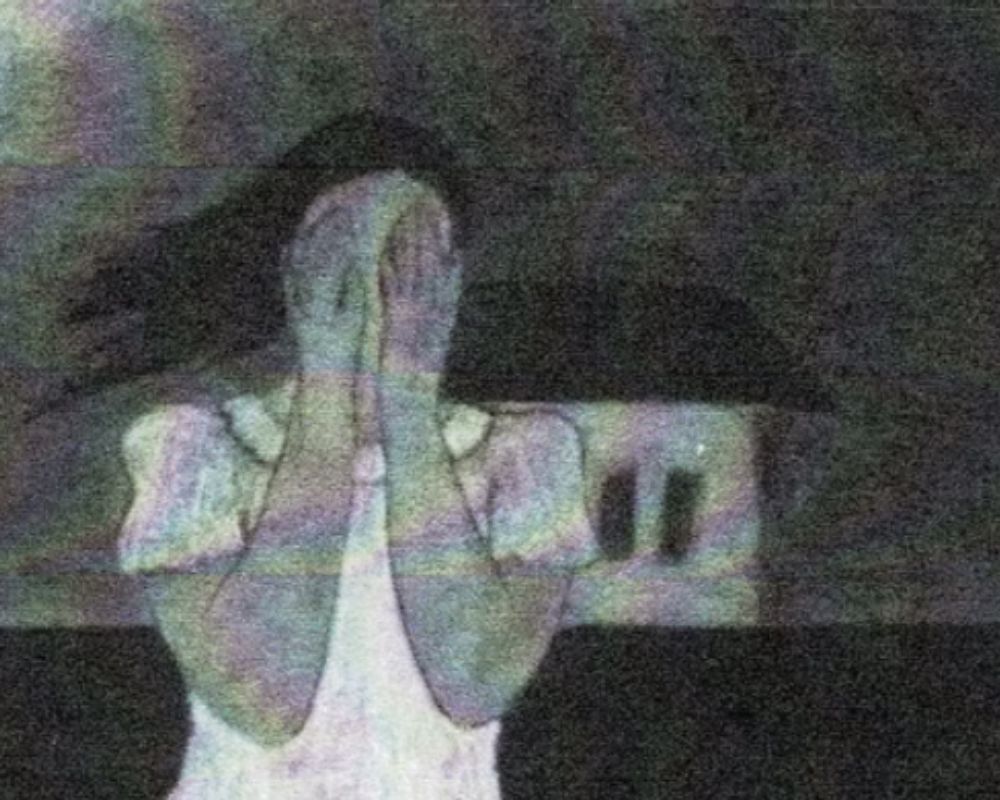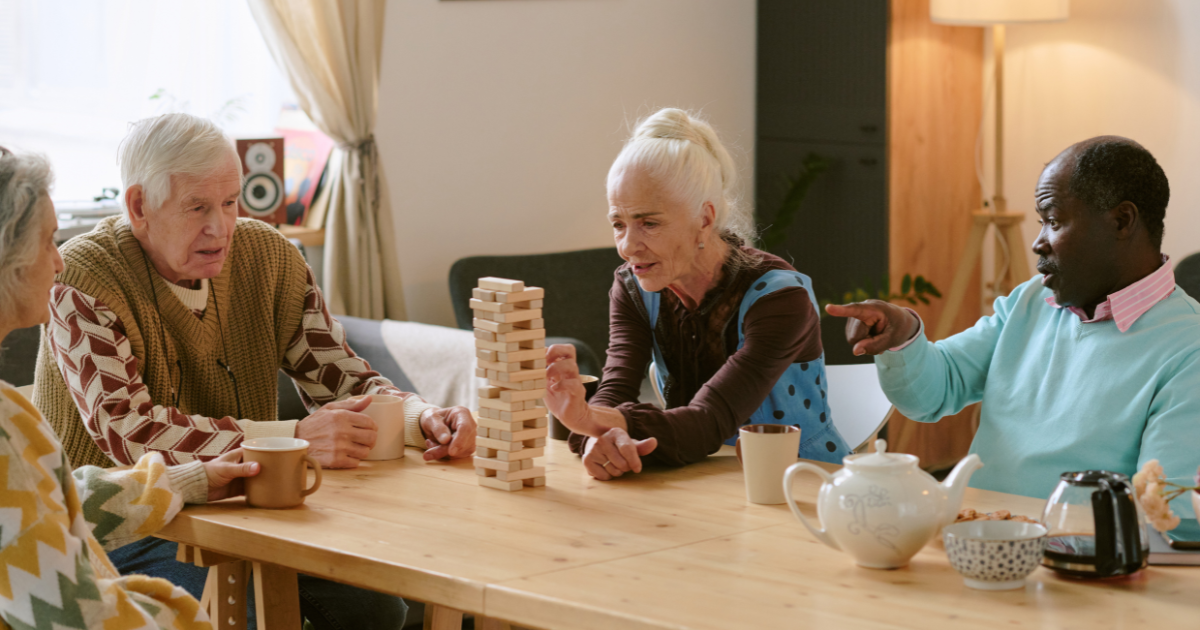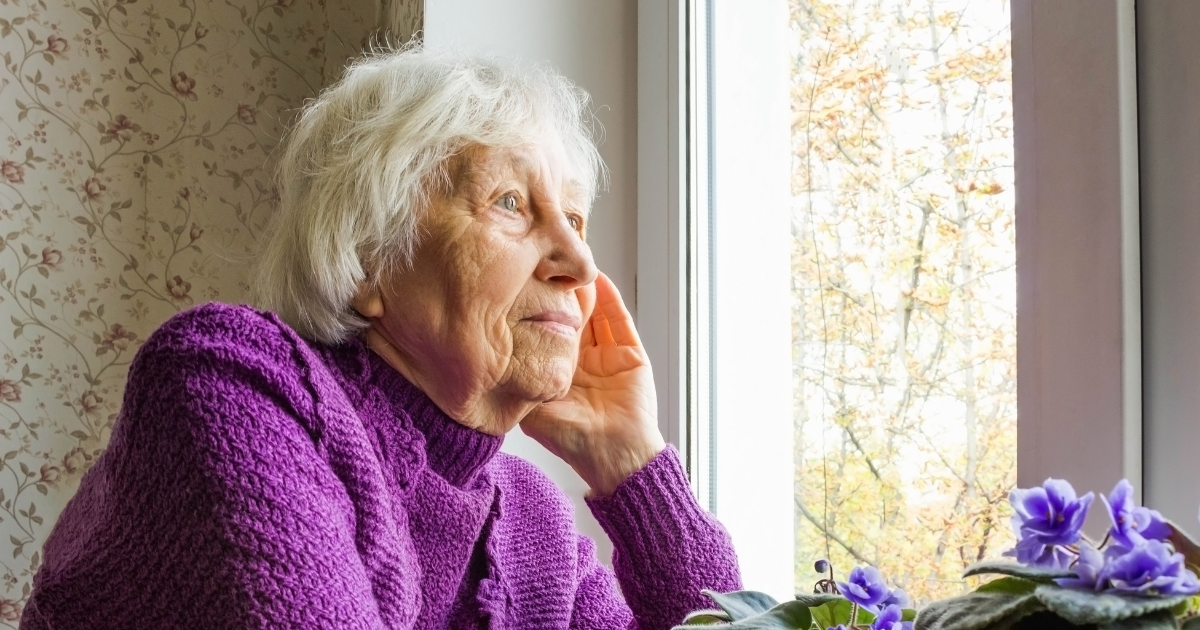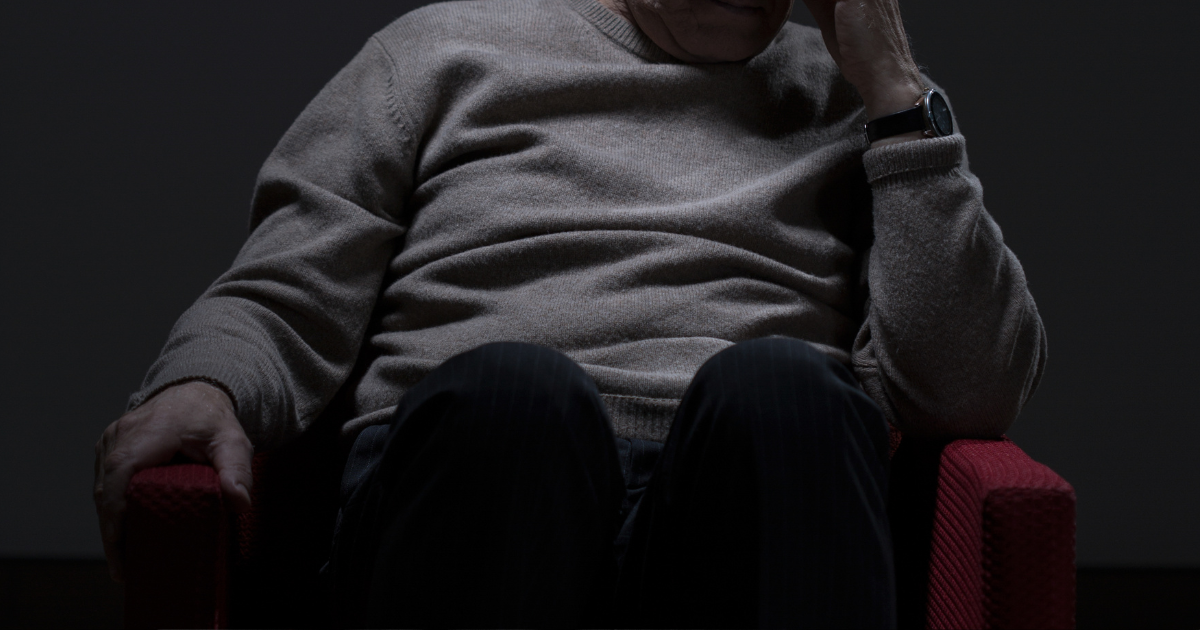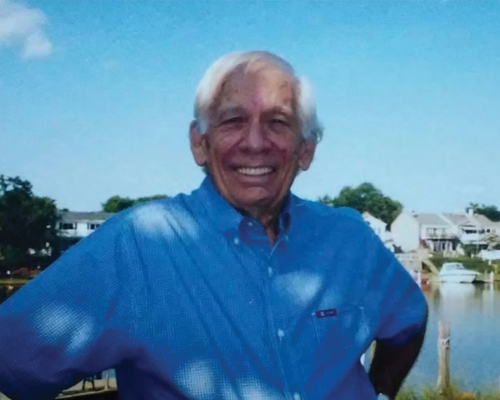CHAPTER 14 - Room 107
Since Dotty, Rob’s daughter, had moved him to an Assisted Living facility, she no longer communicated with me in any way. (I only learned where he was from a friend of Rob’s who knew Dotty.) I visited him the next day.
There he was, living again in one room with one window overlooking a dull and never-changing view, plus a half-bath, and a TV. He still had no computer, no phone or working hearing aids. He was still living with strangers, under other peoples’ rules. He could walk around indoors, but always had to use an unnecessary walker. There were several dining areas, a lobby and a bright enclosed porch to use to break the monotony of a single room. There was also a “social” room, which Rob studiously avoided, calling it the “slumper” room, where people sat slumped in their chairs or wheelchairs, apparently asleep. He was not a big socializer, did not like bingo or sing-alongs.
JAILS WITH CURTAINS
At this place, I had to check in at the front desk at every visit. Since he had no phone, he never knew who might walk into his unlocked room or when. This building was cleaner and less shabby than the rehab facility had been. They offered an impressive list of services:
Independent Living Assisted Living Long Term Care Hospice Care Short Term Stays/Respite Free Home Visit Month to Month Rental No Income Verification Aging in Place Alzheimer’s and Dementia Care Video Surveillance 24/7
In spite of all the supposedly available services, he had barely settled in when he succumbed to another undetected urinary tract infection and was hospitalized. He had always responded rapidly when treated with antibiotics at the onset of an infection. I was concerned that he was not getting proper care. I was also aware that manipulation of medications can be a very effective means of control. Did Dotty not provide the correct and complete information about Rob’s condition and current medications? Was this a poorly run facility? Perhaps. It proved, however to have more sinister, hidden dangers.
COLD COMFORT
Rob again endured hours of being alone, with only my visits most days, and the occasional but contentious episodes with Dotty and sometimes her husband. (I did not know if Rob’s granddaughters ever visited.) He missed his daily long walks in the park. He was always cold. The heater worked, but perhaps he needed steady warmth from caring people, from laughter and companionship. I often urged him to speak up, to protest, but he wouldn’t. He couldn’t.
Rob had always been a strong and often stubborn advocate of honesty and independence. He was not argumentative, pleading or whiney. How chilling was it that he knew his daughter was deliberately torturing him, and he was helpless to resist?
IN HARM’S WAY
When Dotty placed him in Assisted Living, I realized that what she wanted was to harm him or worse, but not why. Was she in financial difficulty and needed his money, or in poor mental health, or addicted to drugs or alcohol? She put on a good front with her travels, her home on many acres, her lavish pool parties and fake concern for her father’s well-being. Some family caretakers suffer great stress because of time and money constraints, but Dotty was retired and was no doubt using Rob’s money.
I knew little about Rob’s past relationship with his daughter. He seemed to love and trust her, and she occasionally met him for lunch, phoned him, and included him in family dinners at holiday times. She was busy with her social events, travel, church, her children and grandchildren. Where and when she got her malice and intent to destroy him I do not know. I did not suspect it and I don’t think Rob did.
Were there some long-ago hurtful family issues that had been simmering in her mind? I did not know the family history, and neighbors never mentioned anything. Only two things stand out in my memory. One time when Rob asked “Do you love your daughter?” I replied that I adored her. That was it. And on one birthday card early in our relationship he wrote “Til you came along, I was barely hanging on.”
THE TIPPING POINT
Was his initial hospitalization for an infection the time when Dotty hatched her plan to get rid of Rob and his problems? Had she been hating the job of helping him when all she wanted was to socialize, go on cruises and have fun? Also, incidentally, was she tired of waiting to get his money? After all, he was very old, but very strong, and had been overcoming many health issues for a long time. (I very likely made another mistake when, at an earlier birthday lunch for Rob, I remarked to Dotty that all of his siblings were still alive and longevity seemed to be a family trait.)
Then came the time when Dotty told Rob that he couldn’t drive any more. He could not understand, since he was not disabled, and had a perfect driving record. She told him that she was giving his car - his beautifully maintained, nearly twenty-year-old treasure - to her granddaughter. Then, the ultimate shock – that his home must be sold. His beloved home, which he designed and loves and where he could live in peace.
NOWHERE TO GO
Rob was devastated. He would never go home. He was helpless. He could not stop her. He could not object. She is his only child and he must depend on her for any possible long - term help. The next three months were a spiral into hell for Rob, a horrible story of hate and greed, of despair and decline, with only a few bright spots from his friends and my family. He did not need to be in assisted living. For him, it was assisted dying.
HOW DO I COPE WITH MY FEELINGS WHEN SOMEONE I LOVE IS HURTING ME?
YOU CAN HELP YOURSELF AND OTHERS IF YOU KNOW
These are some of the most common though unexpressed thoughts of older people living with family violence: from CARIE.org:
“I FEEL SO ALONE”
“I FEEL LIKE THERE’S NOTING I CAN DO”
“I MUST HAVE BEEN A BAD PARENT”
“NO ONE WILL BELIEVE ME IF I TELL THEM”
“PEOPLE WILL THINK I DON’T LOVE MY FAMILY IF I GET HELP”
“IF I TRY TO GET HELP, IT COULD MAKE THINGS WORSE”
“WHO WILL HELP ME IF I PUT THEM OUT?”


